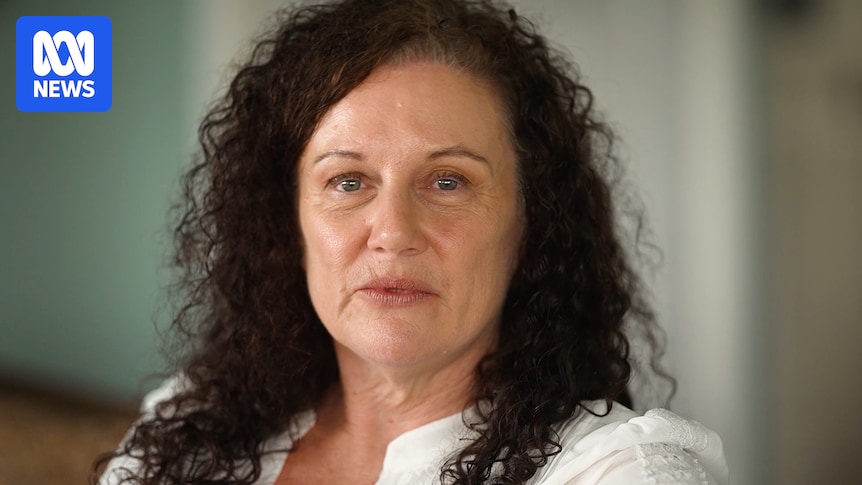Experts are calling for more transparency in the way compensation is calculated for people who are wrongfully imprisoned, after a $2 million payment offered to Kathleen Folbigg was slammed as “totally inadequate”.
On Thursday, NSW Attorney-General Michael Daley granted the payment to Ms Folbigg, who spent 20 years in jail after being wrongfully convicted in 2003 of killing her four children.
Ms Folbigg walked free from prison in 2023, and last year she applied for a compensation payment.
Premier Chris Minns defended the $2 million compensation payment on Friday after criticism that it was “grossly inadequate”.
Kathleen Folbigg was found guilty by a jury in 2003 for the manslaughter of one and murder of three of her children over a 10-year period. (Supplied)
Mr Minns said the figure was what the government could afford, adding that Ms Folbigg and her lawyers were free to pursue legal action if they wanted to seek a higher amount.
The granting of compensation, known as ex gratia payments, is made at the discretion of the government.
Legal and scientific experts say the payment offered to Ms Folbigg was another “miscarriage of justice” and point to flaws in the system.
Lasting financial, emotional toll of wrongful imprisonment
Eileen Baldry, an emeritus professor of criminology at UNSW, was among a group of senior legal experts who had lobbied for Ms Folbigg’s conviction to be overturned.
She said the 58-year-old has “lost all of her early and middle adulthood” as a result of her wrongful conviction.
“The fact is, for 25 years Kathleen has not had the access to the life that many of us have had, a whole range of things that the majority of people take for granted,” she said.
Eileen Baldry says that for 25 years Ms Folbigg missed out on a normal life. (Supplied: Eileen Baldry)
Professor Baldry said this included everything from superannuation and building up a rental history, to forging relationships in the community.
“You are completely separated from the rest of the world. Those connections and relationships we have in our 20s, 30s and 40s, she had none of that.”
She said it would be very difficult to start building up finances in someone’s late 50s so suddenly.
“Kathleen still lives with the stigma of having been in prison. And having originally been convicted, now there is some very good research that shows that, you know, in the colloquial term, mud sticks.”
Tracy Chapman, who is a long-time friend, said the $2 million compensation offered did not take Ms Folbigg’s full circumstances into account.
“Kath’s been having ongoing mental health care since she got out in June, because they just booted her out and chucked her at my gate, and said ‘There’s your bloomin’ lot,'” Ms Chapman said.
“Even though she’s done some courses in prison, it was never enough to be able to get out there and work in the workforce.”
Tracy Chapman, (left), says Ms Folbigg left prison with very little support. (Supplied)
‘Can you put a number on it?’
The amount of compensation offered in some of Australia’s highest-profile wrongful convictions has varied considerably.
Lindy Chamberlain was awarded $1.3 million from the federal government in 1992 for being wrongfully imprisoned for four years over the death of her daughter.
Henry Keogh, who spent 19 years in prison after he was wrongfully convicted of his fiancée’s murder, received $2.5 million from the South Australian government in 2018.
Calls for Folbigg compensation inquiry
Rachel Dioso-Villa, a senior lecturer at Griffith University whose research has focused on wrongful convictions, said the process for calculating ex gratia payments lacked transparency.
“Can you put a number on it? Because we don’t get to see just how hard her life is and how much it’s shifted and changed,” she said.
“Considering the loss of family, job security, years of life lost, psychological trauma, and the associated stigma, [$2 million dollars] feels far too little.”
In a statement, a NSW government spokesperson said that because ex gratia payments were discretionary by nature, there was no formal criterion.
“Every case is carefully considered according to its own facts and in its own context,” the statement said.
“There are no set amounts that a person may receive when this discretion is exercised.”
Legal challenge ‘very difficult’
While the premier has suggested Ms Folbigg and her lawyers could mount a legal challenge, others are unsure that is possible.
In the ACT, David Eastman successfully challenged a $3 million ex gratia payment offered by that jurisdiction, after spending nearly two decades in jail for a murder he was found not to have committed.
David Eastman (left) successfully challenged a $3 million ex gratia payment by the ACT government, after spending nearly two decades in jail. (ABC News )
He was awarded $7 million under the territory’s Human Rights Act in 2019.
Bob Moles, a Flinders University expert on wrongful convictions, said unlike the ACT, NSW does not have a state Human Rights Act.
He said this meant it was unlikely Ms Folbigg would be able to mount a legal challenge.
“Two million dollars is abysmal, but the number of people who are wrongfully convicted and get nothing is significant.”
Dr Moles said the only legal avenue would be to sue for malicious prosecution, which would be “very difficult”.
“Most of your money will be spent on legal fees with little chance of success,” he said.
“The system is rotten, and it doesn’t care about people who’ve been wrongly convicted.”

